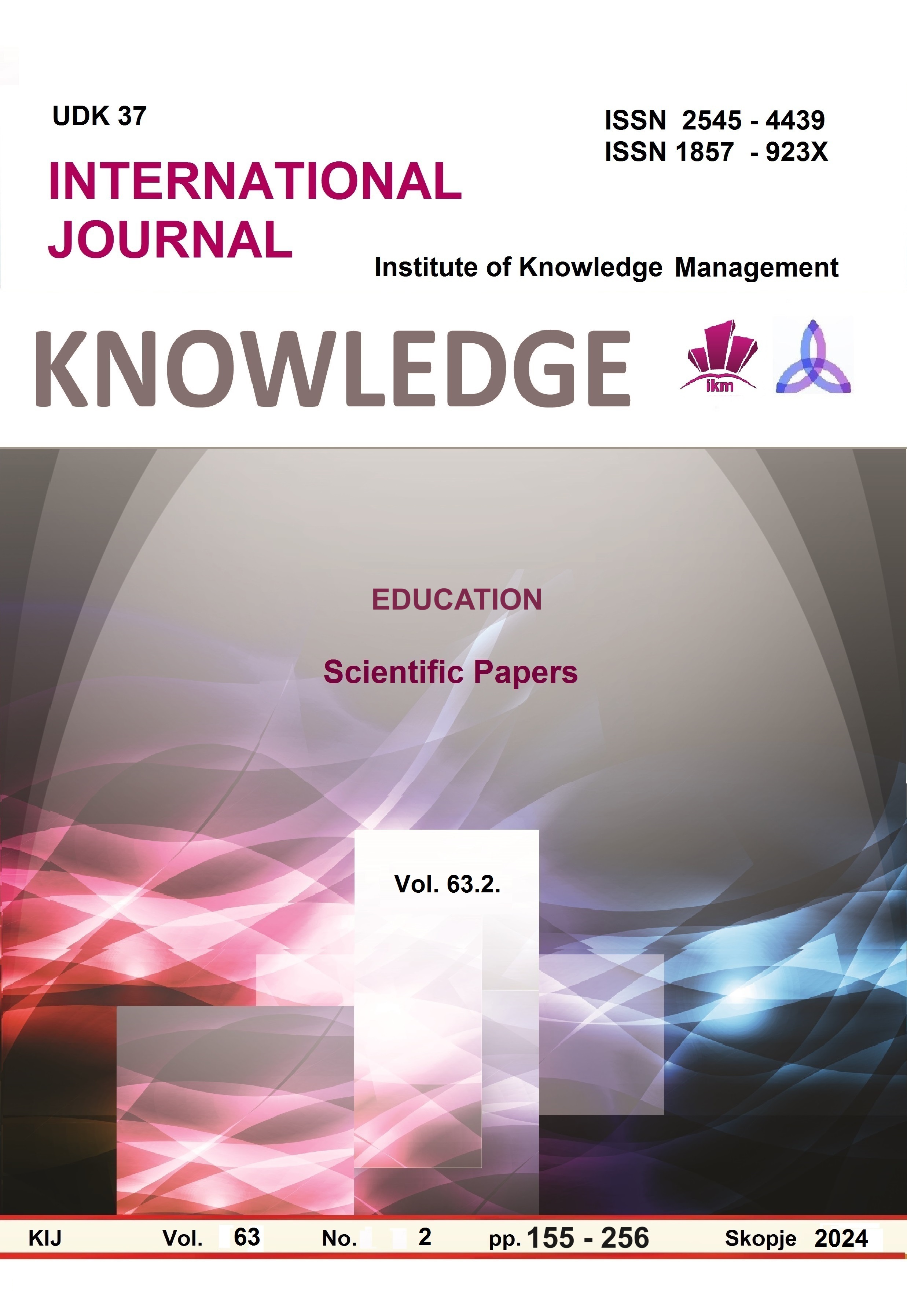THE SOCIAL PRESTIGE OF TEACHERS IN GREEK EDUCATION: CHALLENGES AND OPPORTUNITIES
THE SOCIAL PRESTIGE OF TEACHERS IN GREEK EDUCATION: CHALLENGES AND OPPORTUNITIES
Author(s): Konstadina BalalaSubject(s): Social Sciences, Education
Published by: Scientific Institute of Management and Knowledge
Keywords: Greek education;teachers;social prestige;challenges;opportunities
Summary/Abstract: The social prestige of teachers within the Greek education system is a topic of critical importance, reflecting broader societal attitudes towards education and its role in shaping individual and collective futures. This article is a comprehensive research report that focuses on the analysis of the challenges and opportunities surrounding the social prestige of teachers in the Greek education system. The present study aims to delve into the multifaceted dynamics that shape the status of teachers in Greek society and propose drastic strategies for reform. Methodologically, the research uses a rigorous approach, including a comprehensive review of the scientific literature, analysis of empirical data, and critical examination of historical and contemporary factors affecting the social status of teachers. The results of the study reveal the challenges faced by Greek teachers, covering financial pressure, bureaucratic obstacles and lack of professional autonomy. Austerity measures have led to stagnant wages, reduced benefits and precarious working conditions for teachers, exacerbating existing inequalities in the quality of education. Bureaucratic barriers, including burdensome administrative procedures and standardized testing regimes, impede teachers' ability to focus on their core mission of teaching and learning. Additionally, a lack of professional autonomy reduces teachers' ability to adapt their teaching approaches to the diverse needs of their students, stifling innovation and creativity in the classroom. Despite these challenges, the study identifies many opportunities to enhance the social prestige of teachers. Investing in professional development initiatives is emerging as a key strategy for empowering teachers and equipping them with the knowledge and skills needed to excel in their profession. Promoting teacher leadership roles in schools and communities can foster a culture of collaboration and innovation, while celebrating success stories can highlight the positive impact teaching has on students' lives and inspire future generations of teachers. Strengthening social support networks provides teachers with the camaraderie and support they need to meet the challenges of their profession and advocate for meaningful change. The conclusions drawn from the research underline the importance of valuing and empowering teachers as key stakeholders in the education system. Systemic reforms are needed to address the root causes of teacher dissatisfaction and disengagement, including increasing investment in education, reducing bureaucratic burdens, and fostering a culture of respect and appreciation for teachers. Recommendations are provided for policy makers, educators and stakeholders to support the revitalization of the social prestige of teachers, emphasizing the critical role of education in shaping the future of Greek society. In addition to these findings, the abstract presents additional data and insights that emerged from the study, offering a comprehensive understanding of the complexities surrounding the social position of teachers in Greek education.
Journal: Knowledge - International Journal
- Issue Year: 63/2024
- Issue No: 2
- Page Range: 181-186
- Page Count: 6
- Language: English

